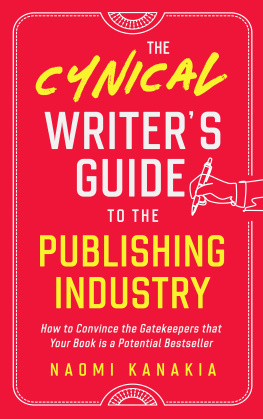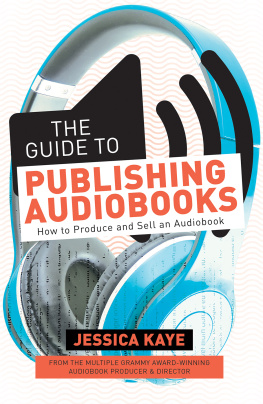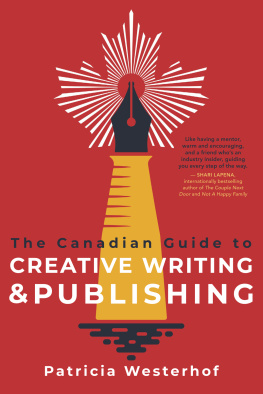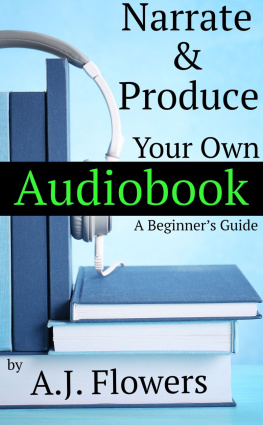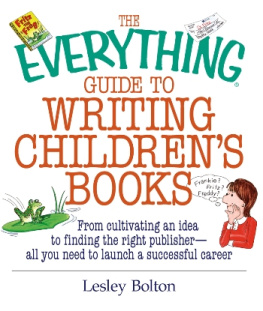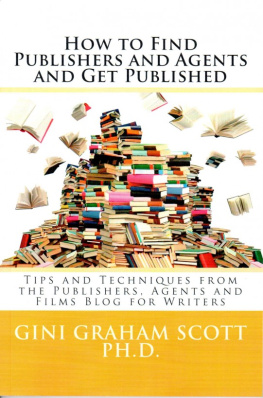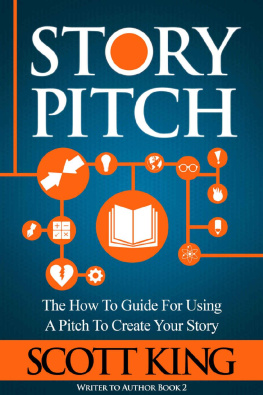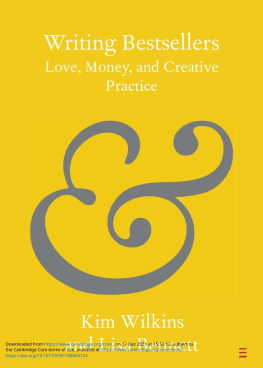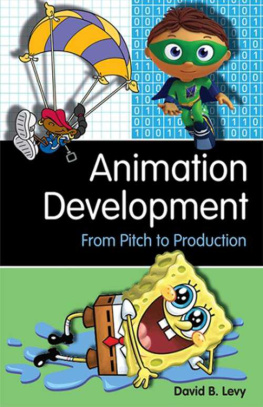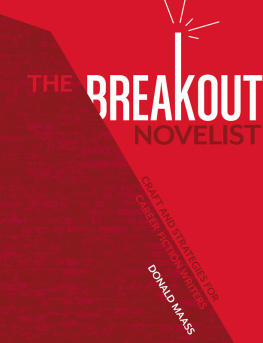Naomi Kanakia - The Cynical Writers Guide to the Publishing Industry
Here you can read online Naomi Kanakia - The Cynical Writers Guide to the Publishing Industry full text of the book (entire story) in english for free. Download pdf and epub, get meaning, cover and reviews about this ebook. year: 2021, publisher: Naomi Kanakia, genre: Art. Description of the work, (preface) as well as reviews are available. Best literature library LitArk.com created for fans of good reading and offers a wide selection of genres:
Romance novel
Science fiction
Adventure
Detective
Science
History
Home and family
Prose
Art
Politics
Computer
Non-fiction
Religion
Business
Children
Humor
Choose a favorite category and find really read worthwhile books. Enjoy immersion in the world of imagination, feel the emotions of the characters or learn something new for yourself, make an fascinating discovery.
- Book:The Cynical Writers Guide to the Publishing Industry
- Author:
- Publisher:Naomi Kanakia
- Genre:
- Year:2021
- Rating:4 / 5
- Favourites:Add to favourites
- Your mark:
The Cynical Writers Guide to the Publishing Industry: summary, description and annotation
We offer to read an annotation, description, summary or preface (depends on what the author of the book "The Cynical Writers Guide to the Publishing Industry" wrote himself). If you haven't found the necessary information about the book — write in the comments, we will try to find it.
Ever wonder why some books make it to bookstore shelves and some books sit on the authors hard drive forever? The secret isnt the quality of the writing or storytelling. Its not even who you know. Its all about one thing: Does the publishing industry believe your book has the potential to be a bestseller?
The Cynical Writers Guide to the Publishing Industry is a manual for playing on agents and editors preconceptions and expectations. It teaches you how to get the industry players excited about your books potential to become a bestseller. This isnt about selling out or compromising your vision. Its about generating excitement for the book youve writtenand excitement, more than anything, determines which books get acquired and which dont.
Heres a smattering of what youll find:
On finding the right pitch for your book - Ideally, your pitch should be quality-agnostic. You want a pitch thatll excite people regardless of whether the book is good or is bad.
On why editors dont care about small profits - ...nobodys paying close attention to the nuts-and-bolts of how an editors books perform. In fact, almost nobody in a house can tell you, off the top of their head, whether a given book has made or lost money for the company. On finding a market niche- Unless theres been a commercially successful book released in the past ten years thats similar to your book, youll have a very hard time selling to a major publisher.
On what veteran authors know - [Unpublished authors] have no idea. They think they just need to write better books. Its only once youve published a book that you really understand the panicky, claustrophobic, fighting-for-the-last-lifeboat-off-the-Titanic quality of the publishing industry. This is a war of all against all, and if you survive for fifteen years, then youve done better than 99 percent of the people who started out with you.
But more than anything, the Cynical Guide is about the times and places when you shouldnt be cynical. This isnt a book about writing a formulaic bestseller. Its about melding innovation and insight to survive in a marketplace that can be hostile to authors and their careers.
Written by the author of two books out with major publishers, the Cynical Guide gives you the tools youll need to convince a big publisher that your manuscript is a cant-miss opportunity.
Naomi Kanakia: author's other books
Who wrote The Cynical Writers Guide to the Publishing Industry? Find out the surname, the name of the author of the book and a list of all author's works by series.

